
Exploring Buk-gu: The Cultural Heart of Gwangju
Buk-gu, located in the vibrant city of Gwangju, South Korea, is a neighborhood that encapsulates both modernity and tradition. Known for its rich cultural heritage and bustling urban life, Buk-gu offers a unique blend of historical sites, contemporary attractions, and natural beauty. Start your journey at the Gwangju National Museum, where you can delve into the region's fascinating history and view exquisite artifacts. A visit to the 5.18 Memorial Park is essential for understanding the significant democratic movements in South Korea's recent past. The park's serene environment also provides a peaceful retreat from the city's hustle and bustle. For a taste of local life, head to the Yangdong Market, one of the oldest traditional markets in Gwangju. Here, you can sample a variety of Korean street foods, shop for traditional crafts, and experience the vibrant market atmosphere. If you are a nature enthusiast, Mudeungsan National Park, located nearby, offers stunning hiking trails with panoramic views of the city and surrounding areas. Buk-gu is not just about history and nature; it's also a hub for contemporary art and culture. The Asia Culture Center, a short drive away, hosts numerous exhibitions, performances, and cultural events throughout the year. The neighborhood's dynamic mix of old and new makes it a must-visit destination for any traveler.
Local tips in Buk-gu
- Visit the Gwangju National Museum early in the morning to avoid crowds and enjoy a peaceful exploration of the exhibits.
- Explore the 5.18 Memorial Park in the late afternoon for a quiet and reflective experience.
- Bring cash when visiting Yangdong Market, as many vendors do not accept credit cards.
- Wear comfortable shoes for hiking in Mudeungsan National Park, and carry water and snacks for a pleasant trekking experience.
- Check the schedule of the Asia Culture Center in advance to catch special exhibitions and performances.
Exploring Buk-gu: The Cultural Heart of Gwangju
Buk-gu, located in the vibrant city of Gwangju, South Korea, is a neighborhood that encapsulates both modernity and tradition. Known for its rich cultural heritage and bustling urban life, Buk-gu offers a unique blend of historical sites, contemporary attractions, and natural beauty. Start your journey at the Gwangju National Museum, where you can delve into the region's fascinating history and view exquisite artifacts. A visit to the 5.18 Memorial Park is essential for understanding the significant democratic movements in South Korea's recent past. The park's serene environment also provides a peaceful retreat from the city's hustle and bustle. For a taste of local life, head to the Yangdong Market, one of the oldest traditional markets in Gwangju. Here, you can sample a variety of Korean street foods, shop for traditional crafts, and experience the vibrant market atmosphere. If you are a nature enthusiast, Mudeungsan National Park, located nearby, offers stunning hiking trails with panoramic views of the city and surrounding areas. Buk-gu is not just about history and nature; it's also a hub for contemporary art and culture. The Asia Culture Center, a short drive away, hosts numerous exhibitions, performances, and cultural events throughout the year. The neighborhood's dynamic mix of old and new makes it a must-visit destination for any traveler.
Iconic landmarks you can’t miss
Gwangju National Science Museum
Discover the fascinating world of science at Gwangju National Science Museum, a hub of interactive exhibits and educational experiences for all ages.
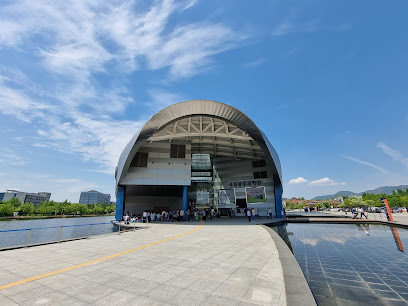
Mudeungsan National Park
Explore the breathtaking landscapes and rich biodiversity of Mudeungsan National Park, a natural treasure in Gwangju, South Korea.
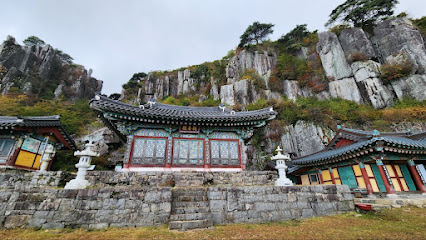
Gwangju National Museum
Discover Gwangju's cultural treasures at the Gwangju National Museum, where history and art come alive in captivating exhibitions.
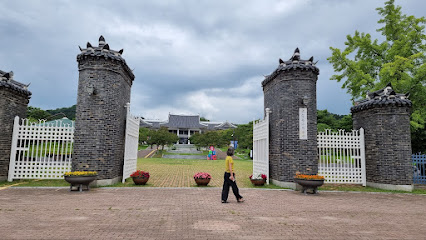
Gwangju Museum of Art
Explore contemporary art and cultural treasures at Gwangju Museum of Art, a vibrant hub for art lovers in South Korea's historic city.
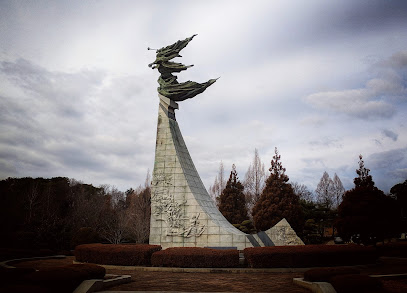
Sajik Park Observatory
Discover breathtaking views from Sajik Park Observatory, a serene escape in Gwangju, blending urban beauty with nature's tranquility.
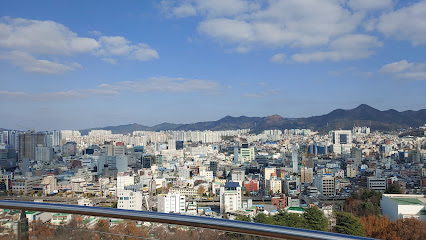
Jungwoe Park
Experience the tranquility of Jungwoe Park, a beautiful city park in Gwangju offering lush landscapes, vibrant flora, and serene walking paths.
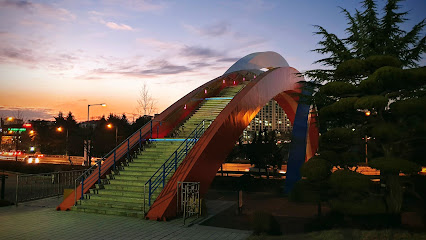
5.18 Democracy Square
Experience the profound history and vibrant culture of Gwangju at 5.18 Democracy Square, a landmark dedicated to the fight for democracy and human rights.
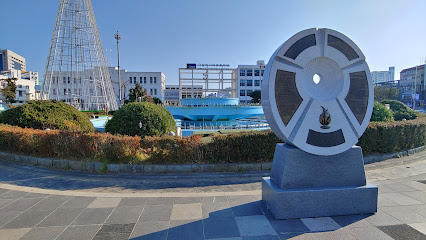
Gwangju History & Folk Museum
Explore Gwangju's vibrant history and culture at the Gwangju History & Folk Museum, where interactive exhibits and artifacts await your discovery.
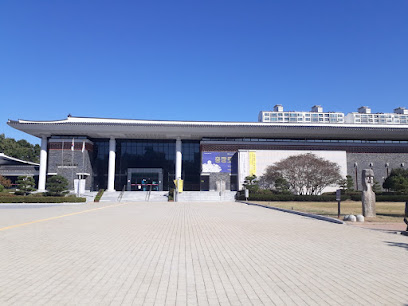
Gwangju Art Street
Discover Gwangju Art Street, a vibrant cultural hub filled with stunning artworks, live performances, and a unique blend of creativity in South Korea.
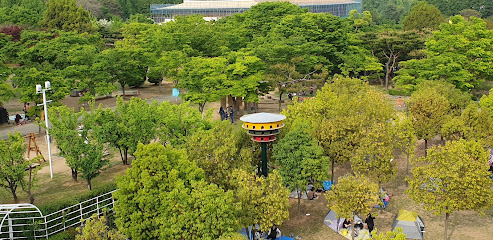
Gwangju Castle
Discover the historical beauty of Gwangju Castle, a tranquil escape into Korea's rich cultural heritage and architectural elegance.
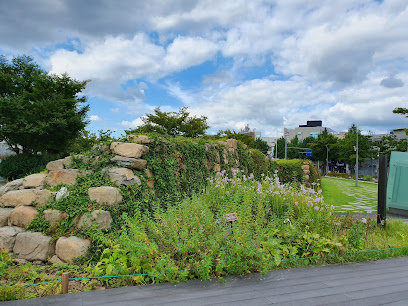
Unmissable attractions to see
Mudeungsan National Park
Explore the stunning landscapes and diverse ecosystems of Mudeungsan National Park, a must-visit destination for nature lovers in Gwangju, South Korea.
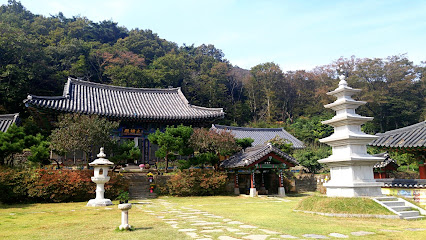
Gwangju Museum of Art
Explore the vibrant art scene at Gwangju Museum of Art, showcasing contemporary exhibits and cultural events in a stunning architectural setting.
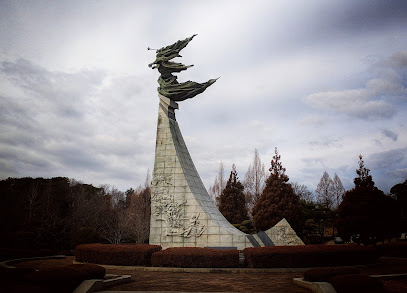
The Radiating Youthfulness Village
Discover the vibrant atmosphere and cultural richness of The Radiating Youthfulness Village in Gwangju, South Korea.
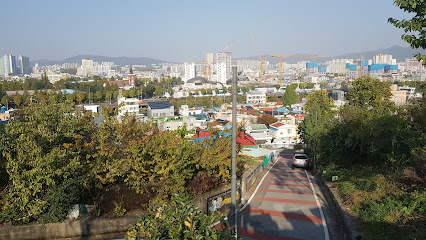
Essential places to dine
Minsokchon
Savor authentic Korean ribs at Minsokchon in Gwangju - a culinary delight steeped in tradition and flavor.
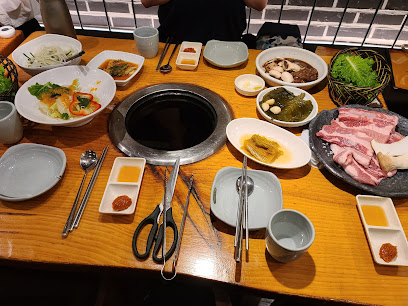
카페바리에
Discover the vibrant flavors of Italian cuisine fused with local tastes at Café Barie in Gwangju – your cozy culinary retreat.
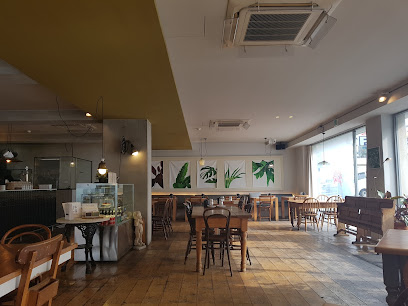
First Nepal Resturant
Experience the authentic flavors of Nepal at First Nepal Restaurant in Gwangju – where every dish tells a story.
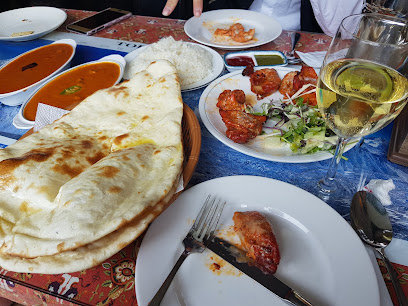
불로만바베큐
Experience Gwangju's culinary delight at 불로만바베큐 - where every bite of grilled chicken tells a story.

예향푸드
Discover authentic Korean flavors at 예향푸드 in Gwangju - a must-visit for food lovers seeking traditional culinary experiences.

아침이슬
Discover authentic Korean flavors at 아침이슬 in Gwangju's Buk-gu – where tranquility meets tradition in every delicious bite.

Restaurant
Explore authentic Korean flavors at this charming restaurant in Gwangju's Buk-gu district, where every dish tells a story.

Wa
Experience authentic Korean cuisine at Wa in Gwangju, where tradition meets flavor in every dish.

Choegolu
Experience authentic Chinese flavors at Choegolu in Gwangju – a culinary gem offering exquisite dishes in a welcoming atmosphere.

머찌네
Discover authentic Korean flavors at 머찌네 in Gwangju's Buk-gu – where culinary tradition meets modern dining.

Markets, malls and hidden boutiques
Gwangju Shinsegae Department Store
Discover the ultimate beauty experience at Gwangju Shinsegae Department Store, where luxury meets an extensive selection of cosmetics and perfumes.
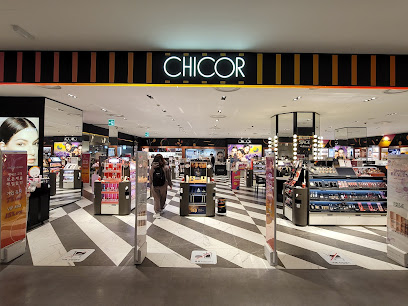
Lotte Department Store, Gwangju Branch
Explore fashion, food, and culture at Lotte Department Store, Gwangju – a premier shopping destination in South Korea.
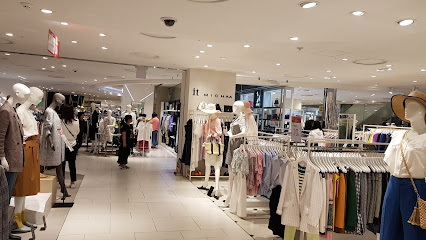
Louis Vuitton
Explore the elegance of Louis Vuitton in Gwangju, a prime destination for luxury fashion accessories and exceptional shopping experiences.
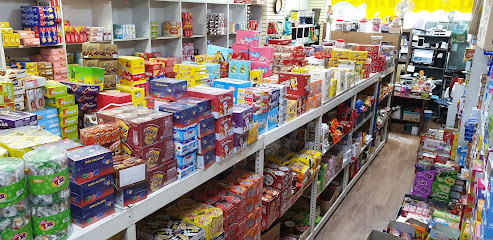
Beautiful Store Gwangju Branch
Explore the charm of Gwangju through its second-hand treasures at Beautiful Store – where sustainability meets unique shopping.
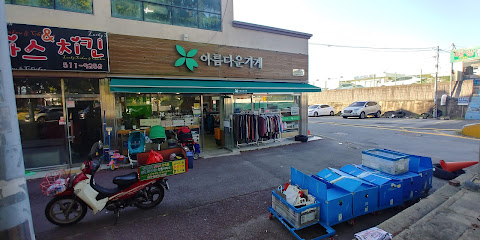
Shinsegae Department Store - Gwangju Branch
Discover luxury shopping and delicious dining at Shinsegae Department Store in Gwangju, where local culture meets global brands.
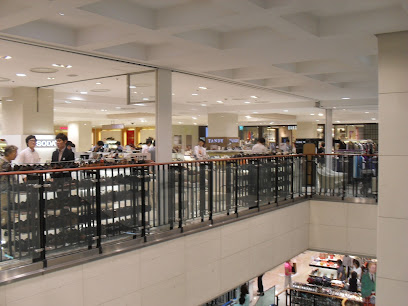
Burberry
Step into Burberry in Gwangju for an unrivaled luxury shopping experience featuring high-end fashion, accessories, and cosmetics.
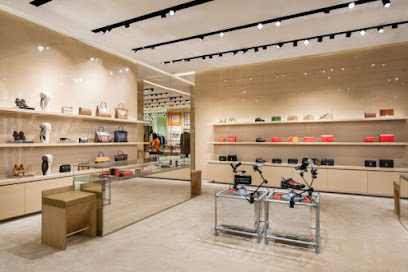
Montblanc Boutique Lotte Gwangju
Explore the elegance of Montblanc Boutique in Gwangju, where luxury meets craftsmanship with exquisite jewelry, leather goods, and fine writing instruments.

DIOR Gwangju Shinsegae
Discover luxury fashion at DIOR Gwangju Shinsegae, where elegance meets high-end leather goods in South Korea's vibrant shopping destination.
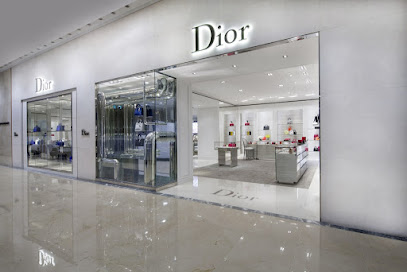
Dsquared2 Gwangju | South Korea
Discover bold styles and contemporary fashion at Dsquared2 Gwangju, a must-visit clothing store in the heart of South Korea's vibrant fashion scene.
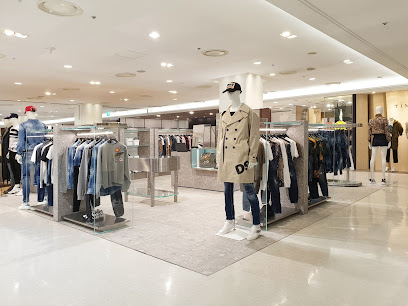
꼬롱이네 소품샵
Explore the charm of Gwangju with unique gifts and handcrafted treasures at 꼬롱이네 소품샵, your go-to spot for memorable souvenirs.

Essential bars & hidden hideouts
훈이 Beer
Experience the lively ambiance and unique decor of 훈이 Beer, a must-visit pub in Gwangju for beer lovers and nightlife enthusiasts.
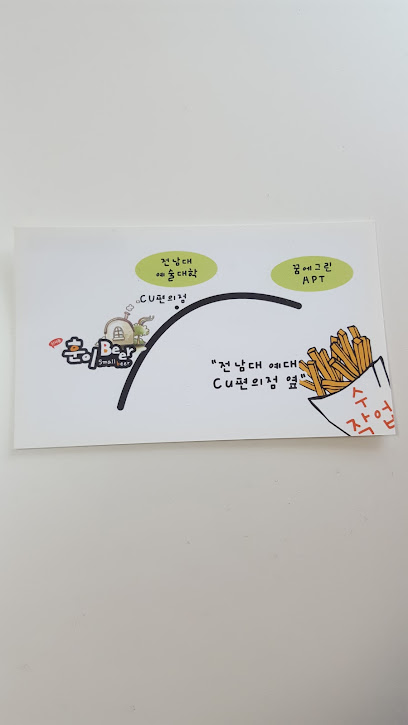
Deomdeom
Experience the vibrant cocktail culture of Gwangju at Deomdeom, a cozy bar with creative drinks and a welcoming atmosphere.
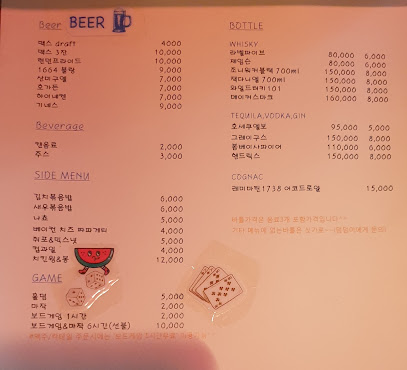
크루즈비어
Enjoy local brews and vibrant nightlife at 크루즈비어, a must-visit pub in Gwangju for beer lovers and social butterflies alike.
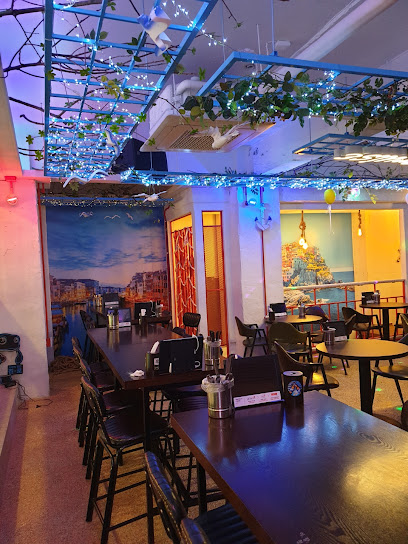
Krim lounge
Discover the vibrant nightlife at Krim Lounge, Gwangju's premier cocktail bar and gay night club, where fun and inclusivity reign.
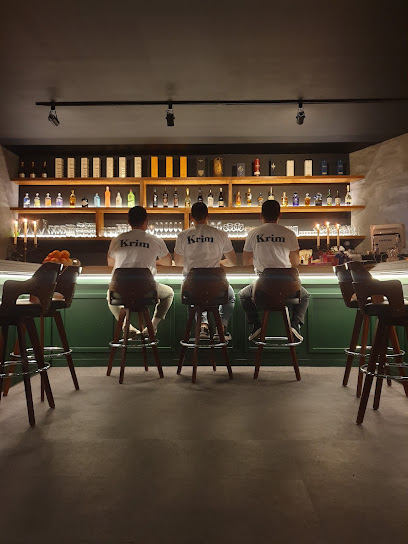
UZAKAYA
Discover the vibrant nightlife at Uzakaya, a bar in Buk-gu, Gwangju, offering creative cocktails and a lively atmosphere for a memorable night out.
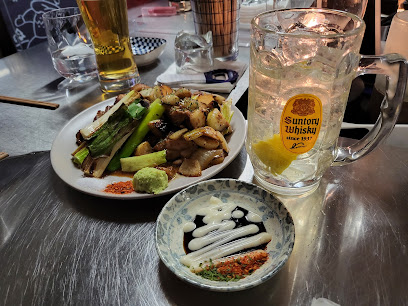
Beon
Experience the vibrant nightlife of Gwangju at Beon, a bar that blends local culture with a fantastic drink selection for an unforgettable evening.
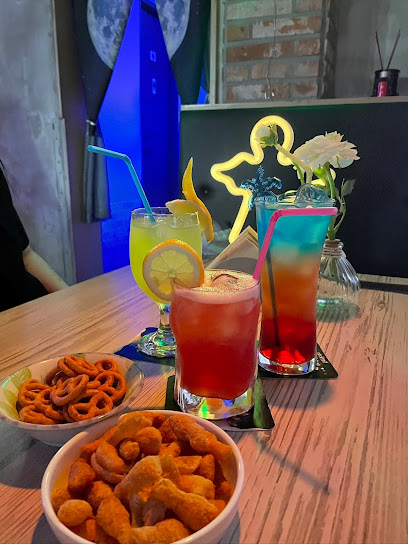
트라이브 레코드바 Tribe record bar
Discover the vibrant nightlife at Tribe Record Bar in Gwangju, where eclectic music meets a welcoming atmosphere for an unforgettable evening.
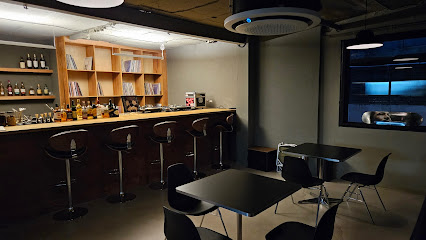
BARW
Experience the vibrant nightlife of Gwangju at BARW, where exceptional drinks and a lively atmosphere await every visitor.

Mongkeu
Experience Gwangju's nightlife at Mongkeu, a vibrant bar offering local drinks, a lively atmosphere, and the perfect spot for socializing.

오프닝비어 (Opening Bear)
Experience the vibrant nightlife and unique drinks at 오프닝비어 in Gwangju's Buk-gu, the perfect bar for tourists to unwind.

Local Phrases
-
- Hello안녕하세요
[annyeonghaseyo] - Goodbye안녕히 가세요
[annyeonghi gaseyo] - Yes네
[ne] - No아니요
[aniyo] - Please/You're welcome부탁합니다/천만에요
[butakhamnida/cheonmaneyo] - Thank you고맙습니다
[gomapseumnida] - Excuse me/Sorry죄송합니다
[joesonghamnida] - How are you?어떻게 지내세요?
[eotteoke jinaeseyo?] - Fine. And you?잘 지내고 있어요. 그리고 당신은?
[jal jinaego isseoyo. geurigo dangsineun?] - Do you speak English?영어를 하십니까?
[yeongeoreul hasimnikka?] - I don't understand이해하지 못합니다
[ihaehaji moshapnida]
- Hello안녕하세요
-
- I'd like to see the menu, please메뉴를 보고 싶어요
[menyureul bogo sipeoyo] - I don't eat meat고기를 먹지 않아요
[gogireul meokji anayo] - Cheers!건배!
[geonbae!] - I would like to pay, please결제하고 싶어요
[gyeoljehago sipeoyo]
- I'd like to see the menu, please메뉴를 보고 싶어요
-
- Help!도와주세요!
[dowajuseyo!] - Go away!가세요!
[gaseyo!] - Call the Police!경찰을 불러주세요!
[gyeongchareul bulleojuseyo!] - Call a doctor!의사를 불러주세요!
[uisareul bulleojuseyo!] - I'm lost길을 잃었어요
[gireul ileosseoyo] - I'm ill아파요
[apayo]
- Help!도와주세요!
-
- I'd like to buy...구입하고 싶어요...
[guibhago sipeoyo...] - I'm just looking그냥 둘러보고 있어요
[geunyang dulleobogo isseoyo] - How much is it?얼마에요?
[eolmaeyo?] - That's too expensive너무 비싸요
[neomu bissayo] - Can you lower the price?가격을 내리실 수 있나요?
[gageogeul naerisil su innayo?]
- I'd like to buy...구입하고 싶어요...
-
- What time is it?지금 몇 시에요?
[jigeum myeot sieyo?] - It's one o'clock한 시에요
[han sieyo] - Half past (10)10시 반
[sibsi ban] - Morning아침
[achim] - Afternoon오후
[ohu] - Evening저녁
[jeonyeok] - Yesterday어제
[eoje] - Today오늘
[oneul] - Tomorrow내일
[naeil] - 1하나
[hana] - 2둘
[dul] - 3셋
[set] - 4넷
[net] - 5다섯
[daseot] - 6여섯
[yeoseot] - 7일곱
[ilgop] - 8여덟
[yeodeol] - 9아홉
[ahop] - 10열
[yeol]
- What time is it?지금 몇 시에요?
-
- Where's a/the...?...이 어디에 있어요?
[...i eodie isseoyo?] - What's the address?주소가 뭐에요?
[jusoga mwoeyo?] - Can you show me (on the map)?(지도 상에) 보여주실 수 있나요?
[(jido sange) boyeojusil su innayo?] - When's the next (bus)?다음 (버스)는 언제와요?
[daeum (beoseu)neun eonjewayo?] - A ticket (to ....)표 (....으로)
[pyo (....euro)]
- Where's a/the...?...이 어디에 있어요?
History of Buk-gu
-
Buk-gu is one of the major districts in Gwangju, South Korea, with a rich historical backdrop. Established as a separate administrative district in 1986, Buk-gu has been an integral part of Gwangju's development, representing the city’s expansion and urbanization efforts. Its location in the northern part of Gwangju has made it a vital area for both residential and commercial activities.
-
Buk-gu played a crucial role during the Gwangju Uprising of May 1980, a pivotal event in South Korea's struggle for democracy. The district was the scene of significant protests against the authoritarian regime, where students and citizens gathered to demand democratic reforms. The uprising was met with violent repression, leading to a tragic loss of life, and the events that unfolded in Buk-gu and surrounding areas are memorialized in the city's numerous monuments and museums dedicated to the victims.
-
The district is home to several cultural landmarks, including the Gwangju National Museum and the 5.18 Memorial Park, which pay tribute to the historical significance of the Gwangju Uprising. These sites serve not only as educational resources but also as places of remembrance for the struggles faced by the citizens of Gwangju. The cultural landscape of Buk-gu reflects a blend of modernity and tradition, showcasing the resilience of its people.
-
In recent decades, Buk-gu has experienced significant urban development, with the construction of new residential complexes, shopping centers, and parks. This modernization reflects Gwangju's broader economic growth and urbanization trends. The district's evolving infrastructure continues to attract new residents and businesses, contributing to the vibrant community life that characterizes Buk-gu today.
-
Buk-gu is also known for its educational institutions, including Gwangju University and various high schools, which play a vital role in the community's identity. Education has historically been a priority in the district, aligning with the broader societal values of Gwangju, where civic engagement and social justice are highly regarded. The presence of these institutions fosters a youthful atmosphere and encourages active participation in cultural and political discourse.
Buk-gu Essentials
-
Buk-gu is easily accessible from other neighborhoods in Gwangju. The Gwangju Metro Line 1 connects Buk-gu to the city center, with several stations located within the area. Additionally, intercity buses operate frequently from Gwangju Bus Terminal to various districts within Buk-gu. Taxis are also widely available and provide a convenient option for direct travel.
-
Public transportation in Buk-gu is efficient and convenient. The Gwangju Metro Line 1 services the area, making it easy to navigate to nearby neighborhoods. Local buses also cover various routes throughout Buk-gu, providing access to shopping areas and parks. For a more active option, renting a bicycle is popular, and bike-sharing services are available at designated locations. Walking is also a pleasant way to explore the neighborhood.
-
Buk-gu is generally safe for tourists, but standard precautions should be taken. Tourists should avoid poorly lit areas at night and keep personal belongings secure. While there are no specific high-crime areas targeting tourists, areas near the Gwangju Bus Terminal can be busy and require vigilance. Overall, it’s advisable to stay aware of your surroundings.
-
In case of emergencies, dial 119 for fire and medical assistance or 112 for police. Local hospitals and clinics are equipped to handle various medical issues. It is recommended to have travel insurance that includes medical coverage. Pharmacies are also available throughout Buk-gu for over-the-counter medications.
-
Fashion: Do dress modestly, especially when visiting temples or traditional sites. Avoid overly revealing clothing. Religion: Do respect local customs, and be quiet and respectful in places of worship. Public Transport: Do give up your seat to the elderly and expectant mothers. Don’t eat or drink on public transport. Greetings: Do greet locals with a slight bow and a friendly smile. Eating & Drinking: Do try local dishes and drink from the communal pot as a sign of acceptance. Don’t waste food or refuse offerings, as it is considered rude.
-
To experience Buk-gu like a local, visit the local markets and traditional food stalls to sample street food delicacies. Engage in conversations with vendors, who often have stories to share about their products. Check out the Bukgu Cultural Center for local events and exhibitions. Also, consider participating in community activities or workshops that showcase local crafts and traditions.
Nearby Cities to Buk-gu
-
Things To Do in Suncheon
-
Things To Do in Mokpo
-
Things To Do in Jeonju
-
Things To Do in Daejeon
-
Things To Do in Daegu
-
Things To Do in Jeju City
-
Things To Do in Busan
-
Things To Do in Ulsan
-
Things To Do in Gyeongju
-
Things To Do in Andong
-
Things To Do in Suwon
-
Things To Do in Pohang
-
Things To Do in Incheon
-
Things To Do in Seoul
-
Things To Do in Chuncheon




